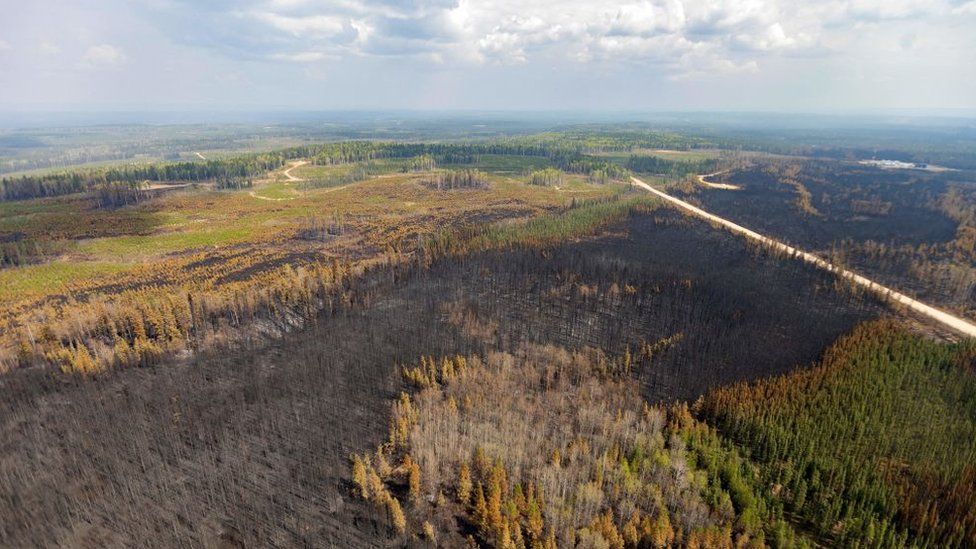The country of Canada is preparing for what meteorologists predict could be the worst wildfire season on record.
2,214 fires have already broken out this year, consuming an area roughly equal to Belgium's size.
The risk of wildfires is predicted to rise in June and stay unusually high throughout the summer with little relief.
The federal minister of natural resources referred to this season's projections as "sobering.".
Jonathan Wilkinson stated at a news conference on Monday that the situation "shows us that this year's already devastating season could well get worse.".
The number of wildfires that Canada has experienced this year are "unprecedented," according to officials, for this early in the wildfire season, which typically lasts from May to September.
Over 3.3 million hectares of land have been burned by the fires collectively across the nation, which is about 12 times more than the average over the previous 10 years.
This trend has been attributed by experts to an abnormally warm and dry spring. This summer's warm, dry weather is expected to persist, increasing the risk of wildfires from British Columbia on the west coast to Atlantic Canada on the east.
The nation may experience its largest-ever wildfire-burned area if the current trend holds.
According to Michael Norton, director general of the Northern Forestry Centre at Canada's Department of Natural Resources, wildland fires are becoming more frequent, more intense, and have longer fire seasons due to climate change.
In Canada, there were 413 active wildfires as of Sunday, 249 of which were deemed to be out of control.
A total of 100,000 people have had to flee wildfires across the nation as of now.
Despite the fact that many have since gone back to their homes, authorities reported that about 26,000 people are still being evacuated across seven different provinces and territories.

The weekend saw rainy weather help put out a wildfire near Halifax, Nova Scotia's largest city, according to the natural resources department of the province.
16,000 people were evacuated as a result of the fire, which destroyed more than 200 homes and other buildings. Some people have now been able to go back home.
In other places, new fires have started, such as in the Canadian province of Quebec, where more than 10,000 people have had to evacuate because of the 164 fires that were burning as of Monday.
Canada has spread out its military forces across the nation to aid in putting out the wildfires alongside local firefighters.
There are also nearly 1,000 firefighters from other nations, including the US, Australia, New Zealand, and South Africa, who are assisting on the scene.
Emmanuel Macron, the president of France, announced on Sunday that an additional 100 firefighters will be sent to Quebec.
The country's current wildfire situation was described as "difficult and heart-breaking" by Prime Minister Justin Trudeau on Monday.
Officials have advised Canadians to exercise extra caution in areas considered to be at a high risk of wildfires and a number of burn bans are in effect across the nation.







